Achievements
Awards and Grants
The talent, skill and hard work of Exciton Science members was recognised in 2022 with a string of awards, medals, grants and prizes from prestigious organisations and institutions.
Please join us in congratulating the recipients and their collaborators.
Inspired by nature, Australia & Germany seek to transform semiconductors
The ARC Centre of Excellence in Exciton Science and the University of Bayreuth will jointly host a new International Research Training Group (IRTG) aimed at enhancing the functionality of semiconductors.
IRTGs are established by the German Research Foundation for an initial period of five years, with a total of €69 million allocated to eleven new groups in the latest round of funding.
The theme of the new IRTG is ‘Optical stimuli in organic and inorganic semiconductors: Understanding and control through external stimuli’.
The group will investigate how the function of a semiconductor can be changed and follows an approach inspired by nature - different functions in light-active systems are achieved by adapting the local environment of the semiconductor.
The aim of the group is to use external stimuli to define the functionality of the semiconductor without changing its chemical composition. Light, local electromagnetic fields and self-organization processes will also be used as external stimuli.
The German-side of the IRTG will be led by Exciton Science Associate Investigator Professor Anna Köhler of the University of Bayreuth.
In Australia, leading roles will be taken by Exciton Science Director Professor Paul Mulvaney (University of Melbourne) and his fellow Chief Investigators Professor Trevor Smith (University of Melbourne), and Monash University’s Dr Alison Funston, Professor Udo Bach and Professor Jacek Jasieniak.
They will work in collaboration with:
- Monash University materials scientists Professor Chris McNeill;
- ANSTO’s Dr Valerie Mitchell, a beamline scientist at the Australian Synchrotron;
- Associate Professor David Jones, a solar energy researcher at the University of Melbourne;
- and University of Melbourne theoretician Dr Lars Goerigk, who is also an Exciton Science Associate Investigator.
Professor Mulvaney said: “We’re delighted by this expression of confidence in the productive, collaborative relationship between Australian and German universities, and between the University of Melbourne and the University of Bayreuth in particular.
“The establishment of this new IRTG will help us answer fundamental questions about innovation in light-active systems that are of great importance in the race to create a clean energy future.
“I’m looking forward to seeing many Exciton Science and University of Melbourne PhD students receiving the benefits of this new exchange program between Australia and Germany.”
For more information about the IRTGs, go to: https://www.dfg.de/service/presse/pressemitteilungen/2022/pressemitteilung_nr_47/index.html
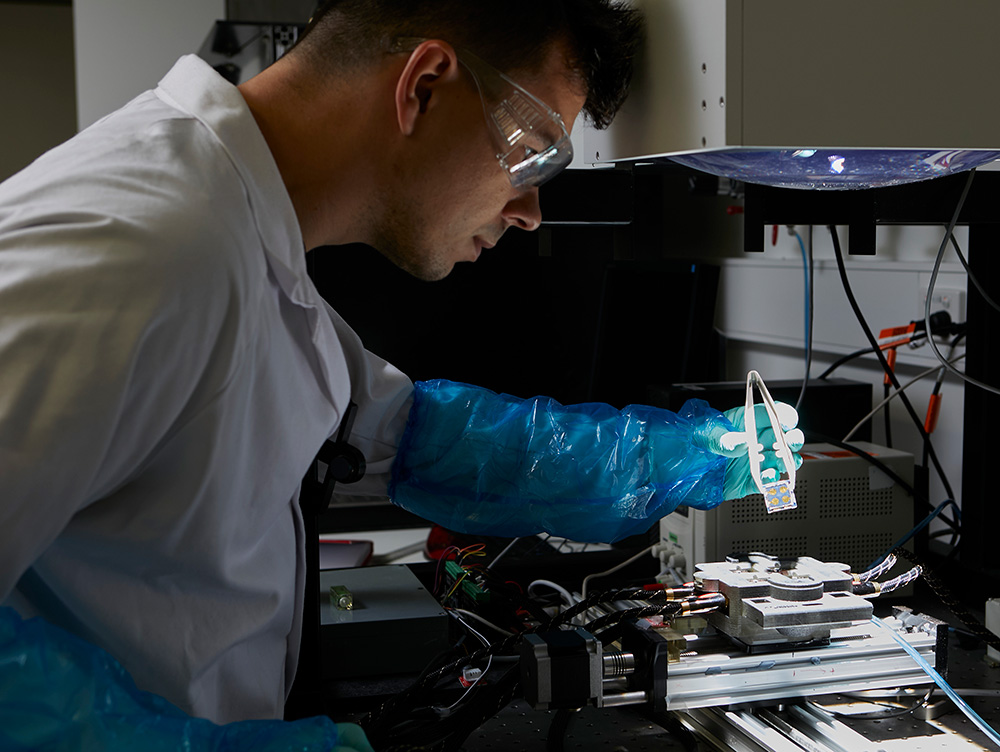
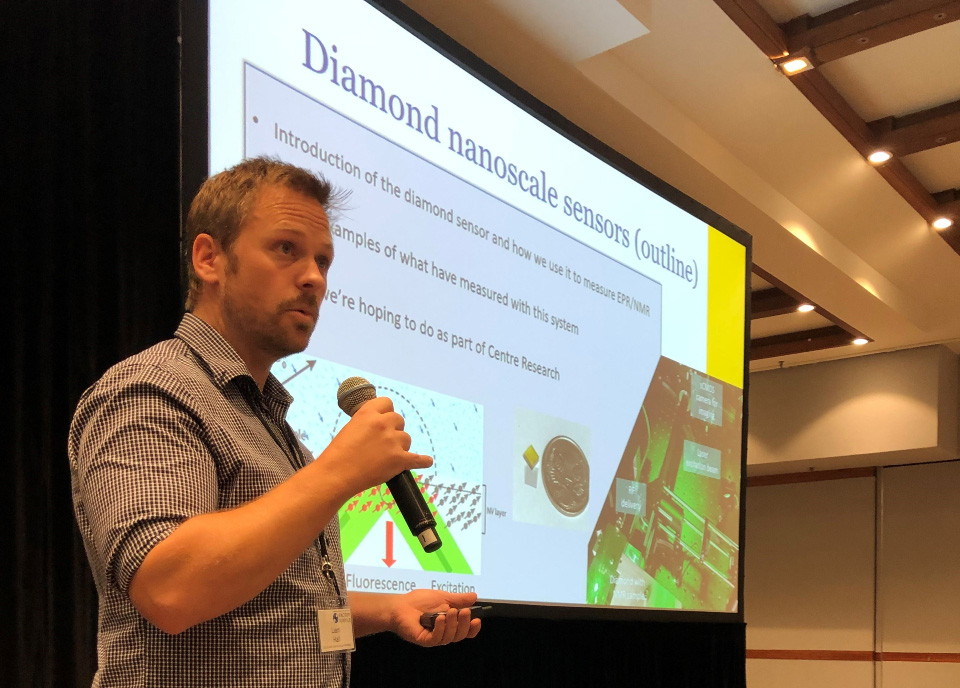
Dr Liam Hall
Liam Hall & Anthony Chesman awarded Defence grant
Exciton Science Associate Investigator Dr Liam Hall and Partner Investigator Dr Anthony Chesman of CSIRO have been awarded a prestigious National Intelligence and Security Discovery Research Grant by the Australian Government’s Department of Defence.
Together with their collaborator Dr David Simpson, Liam and Anthony will receive AU$567,148 to conduct a three-year project. Their aim is to use cutting edge diamond-based quantum sensors to develop a robust, compact and sensitive nuclear magnetic resonance (NMR) spectrometer for trace chemical detection analysis.
NMR is the gold standard of chemical characterisation and quantification. Yet this powerful and ubiquitous technique is not currently available to field operators needing to characterise and quantify samples that are potentially highly toxic or explosive.
Translating their benchtop quantum-based sensing technology to a portable, low-SWaP (size, weight, and power) configuration would provide the Australian Defence Force with enhanced situational awareness and could dramatically reduce exposure of military personnel to chemical and explosive threats, while providing high-fidelity data from which truly informed tactical decisions can be made.
The project was among just four to receive funding in this cycle, and, in a testament to the investigators involved, is the first submission without a professor involved to be successful in the history of this grant.
Dr Hall is an Australian Research Council Discovery Early Career Researcher Award Fellow based at the University of Melbourne. He said: “We’re grateful for the faith shown in us by Defence. Not only could the technology we’re working on save lives around the world, there are also clear and immediate benefits in environmental and health applications. We’re very much looking forward to deploying an accurate, portable NMR spectrometer a reality in the near future.”
Alison Goldingay wins Dean's Award
Exciton Science congratulates PhD student Alison Goldingay on winning the 2021 Dean’s Award for Citizenship and Outreach at the University of Sydney.
Established in 2000 by the Dean of the Faculty of Science, this prize is awarded to postgraduate students who have contributed to the Faculty of Science's non-academic activities and interests.
A member of Exciton Science Chief Investigator Girish Lakhwani’s Molecular Photophysics (MP2) research group, Alison studies optoelectronic processes in organic photovoltaic devices.
She is also investigating the phenomenon of strong light-matter coupling, and is using this to probe photophysical processes occurring within the devices.
She hopes that a greater understanding of these processes will allow researchers to make more efficient organic photovoltaic devices.
Alison has made important contributions to the culture and practices of the Faculty of Science at the University of Sydney and Exciton Science through voluntary membership on several committees.
She has undertaken valuable outreach work intended to provide the wider community with insight into renewable energy research and technology development, including reaching the NSW semi-finals of FameLab.
"I am honoured to win this award and be recognised in this way,” Alison said.
“I care a lot about the kind of atmosphere we create in our workplaces and I think it's so important to truly connect with people around me.
“Everyone has a unique story and contribution that they can bring to the table, and by creating welcoming environments we can enable great collaborative atmospheres to take shape.
“This is a great reminder for me and hopefully to others as well that it's always worth putting in effort to support the people around you."
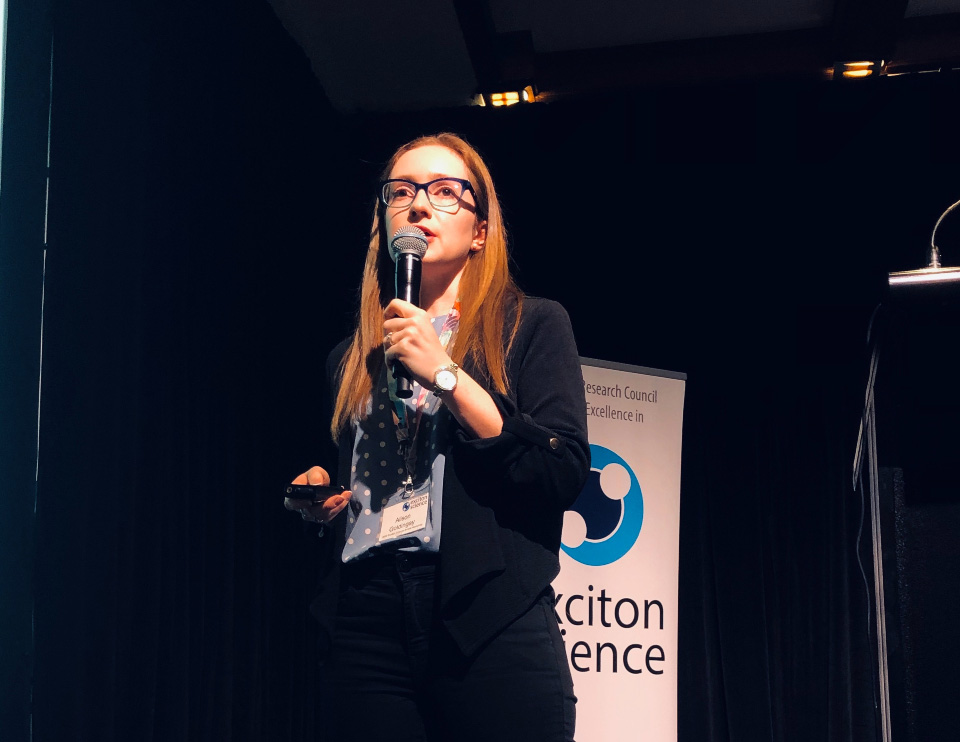
Alison Goldingay
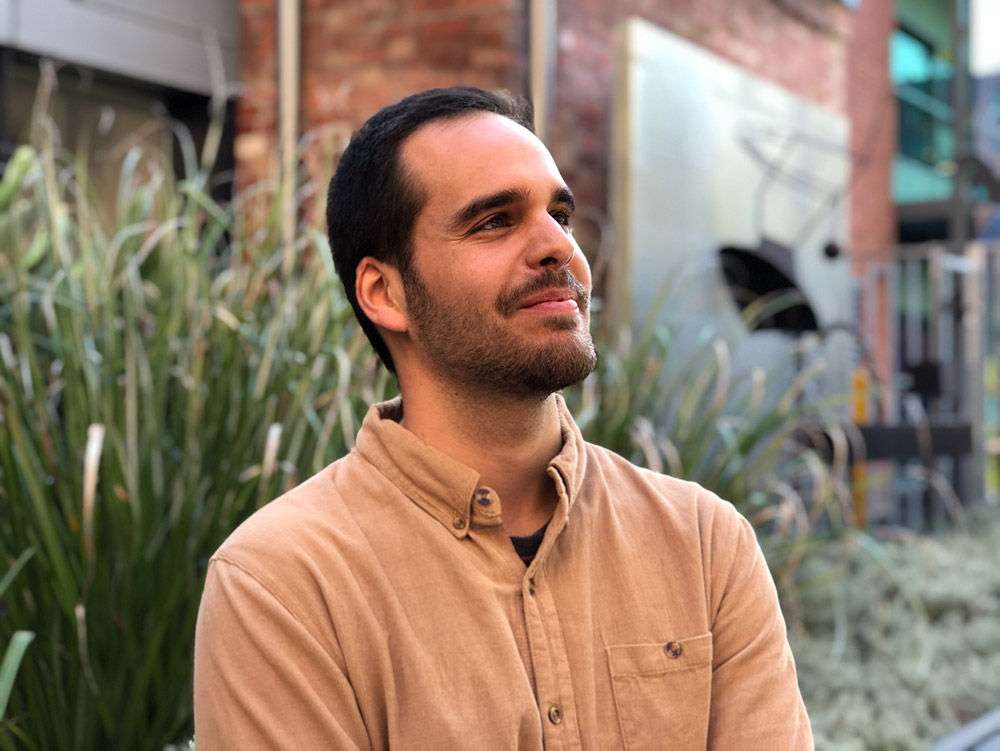
Dr Francesco Campaioli
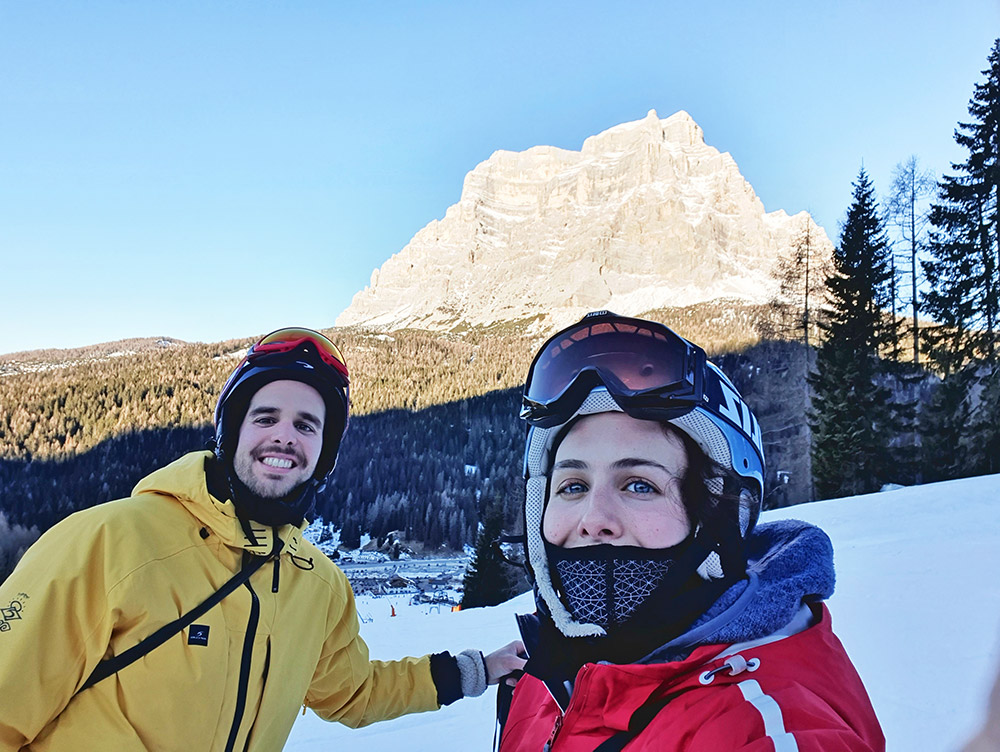
The Campaioli siblings
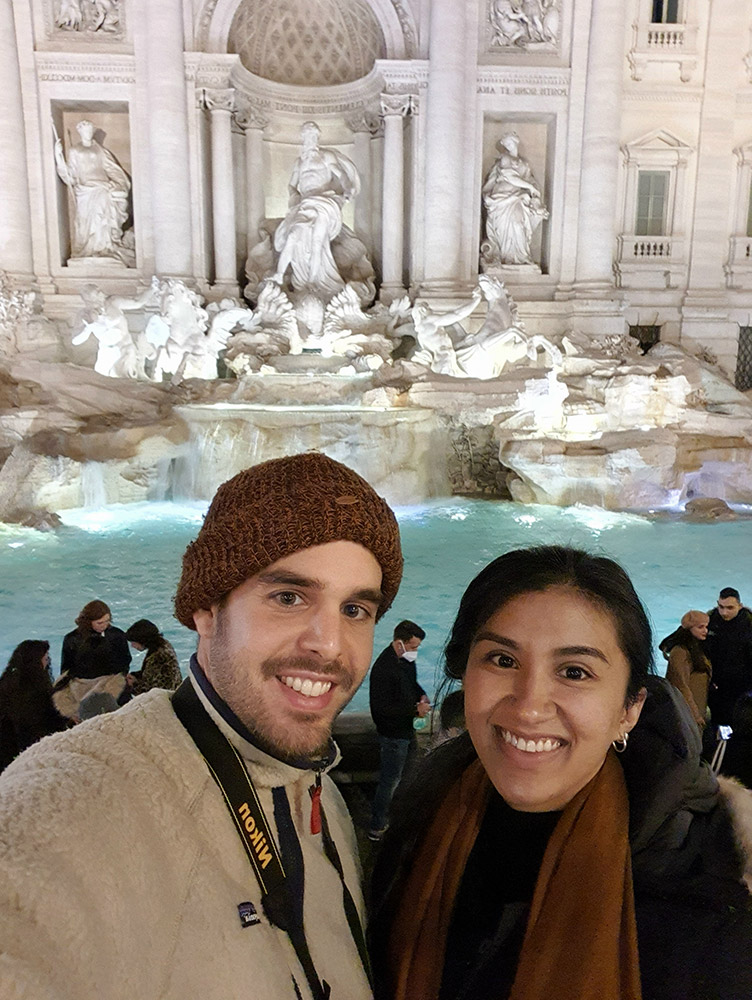
Making a wish at the Trevi Fountain, Rome
Make a wish: Campaioli siblings awarded Marie Skłodowska-Curie Actions grants
Receiving a grant as part of the European Union’s prestigious Marie Skłodowska-Curie Actions (MSCA) program was a life-changing moment for Dr Francesco Campaioli. And thanks to the Trevi Fountain and a little divine intervention, there was someone close to him who knew exactly how he felt.
An Exciton Science Research Fellow based at RMIT University since 2020, being awarded an MSCA Postdoctoral Fellowship will enable Francesco to return to his home city of Padua, and follow in the footsteps of Galileo Galilei by working in physics at Italy’s second oldest university.
Francesco completed his Master’s at the Albert Ludwig University in Freiburg, Germany, and his PhD at Monash University. After many years away from family and friends, a chance to reconnect to roots while advancing his career is a dream come true.
“I will never forget that moment,” he said of the grant announcements.
“I was very patiently waiting for this result to come out. I saw the emails from the European Union. At the start I couldn’t believe it. As soon as I understood that I actually had it, I texted my family WhatsApp chat and I said, ‘Oh my god guys, I actually won! My life is going to change forever!’. It was a beautiful moment.”
A few months earlier, Francesco’s sister had been through a similar period of agonised waiting for news of her own MSCA grant application. Little did she know, her brother’s actions at a famous Roman landmark may have tipped the balance in her favour.
“I’m a very rational person, I’m not superstitious,” Francesco said.
“I’m a good old scientist. But some things are too funny and they have to be reported. My sister, after she finished her Master’s in psychology, she was really struggling to find a PhD. For many months she struggled, she was demotivated. Eventually she stumbled across a Marie-Curie PhD grant. She put together a good application, she was selected for an interview. She found out the other candidates were all male and had very strong backgrounds. She said, ‘I’m not going to get it’. She did the interview, thought it went alright, but nothing special.
“In the meantime, I’m there in Italy with my partner in Rome. One of the things you have to do in Rome is go to the Trevi Fountains, which is really beautiful. You have to flip a coin backwards into the fountain and make a wish. I did that and I can tell you what my wish was. I basically wished to win my Marie-Curie application, but I didn’t specify that. I said, ‘let’s get this Marie-Curie!’ Essentially I was making a selfish wish for myself. A few hours later, my sister called me and she told me she won the Marie-Curie! I was like, ‘Oh my god, I should have specified what I wanted!’. That was incredible. I was stoked but I was also like ‘dammit, I’m never gonna win mine now.’”
After so long away from home, returning to any university in Europe could have been a step in the right direction for Francesco. But it just so happens the University of Padua – the world’s fifth oldest surviving university – is well equipped to help his career reach the next level.
“It’s sort of an alignment of planets again,” he said.
“Physics in Padua is very good, we have a good tradition there. Galileo was working there. The guy from Freddie Mercury’s song. The Physics Department there is great, but it’s only been five years that the group I’m going to work with is actually there in Padua. There’s a Professor, Simone Montangero, who moved from Germany to Italy recently and opened this theoretical quantum physics group there. He’s an expert in two things I want to learn. One is quantum control. Another one is tensor network methods to model these massive quantum systems. Both techniques are going to be very useful for theoretical and practical reasons.”
Francesco is a highly valued member of Exciton Science, both as a researcher and a person. And while he’ll no doubt be missed, fortunately he’ll remain an important contributor to the Centre’s objectives through his proposed research project.
“It’s very much related to Exciton Science,” he said.
“In fact, it’s in collaboration with Exciton Science. The title of my proposal is spin spectral conversion. It’s about doing all those spectral conversion processes like triplet-triplet annihilation and singlet fission, which we use to take the most energy out of the sun’s spectrum and which is otherwise wasted in transmission and thermalisation.
“My proposal is to look at those processes which are spin mediated. I’m a theoretician, so I use quantum mechanics mostly and not so much chemistry. Because of the dynamics of spins there’s some things I can help with in those processes, so I’m going to model those and see if I can get the most out of those.
“I’m very excited to bridge Exciton Science with Europe and Padua in particular. I’m going back to my home town but I’m not cutting the connection with Australia. I actually plan to have two secondment periods at the University of New South Wales working with Dane McCamey, Miles Collins and Thomas MacDonald on these problems.
“They are the experimentalists that can help me actually make the informed decisions to make these models work. I’m very excited to bring these two realities closer together, even though we’re so far away.”
In a ringing endorsement of the culture within the Centre, Francesco is determined to recreate the sense of connection and camaraderie he has enjoyed in Australia when his next chapter begins in 2023.
“We’re doing amazing things here,” he said.
“I never had this feeling before that I have with Exciton Science, to belong to a community of researchers. It’s so nice to go to work and be surrounded with very smart people who are also very nice human beings. I hope it will be like that in my home town. And if it’s not like that, it will be nice to transfer a little bit of that.”
Chris Hall receives Selby Research Award
Exciton Science’s Dr Christopher Hall has received the Selby Research Award for 2022, which he will use to develop a new technique for probing drug structure and bonding.
The Selby Research Award provides funds to assist an outstanding early career academic to establish their research career in chemistry and chemistry-related disciplines.
Chris, a Research Fellow working in the Ultrafast and Microspectroscopy Laboratories at the University of Melbourne, will receive $21,000 for the project ‘Probing drug-target interactions under physiological conditions.’
Chris specialises in using ultrafast electronic and vibrational spectroscopy techniques to resolve excited state processes in semiconductors, proteins and molecular systems.
In this project, he will conduct a preliminary investigation using ultrafast pulses of infrared light to better understand drug-target interactions under physiological conditions, which are difficult to investigate with the methods currently available.
“A lot of the techniques that we use to characterise materials for Exciton Science have applications in other areas of research,” Chris said.
“An area of research that I am interested in outside of advanced molecular materials for excitonic systems is the application of ultrafast vibrational spectroscopy to problems based around determining structure and structural changes in proteins.”
Using the Selby Research Award funds, Chris will employ a femtosecond pulsed laser to selectively excite vibrational modes of a bound drug molecule.
A second laser pulse will be used to detect perturbations in coupled vibrational modes, providing information on drug structure and bonding localised at the binding site.
This will also provide information on ultrafast changes in drug and binding site conformation, giving insight which cannot be obtained with conventional techniques.
“I am deeply grateful to the Selby Scientific Foundation, Exciton Science and the School of Chemistry at the University of Melbourne for supporting my research,” Chris said.
It is hoped the project will provide new information to the pharmaceutical design process to improve the understanding of drug-target interactions before projects proceed to the clinical trial phase.
The ultimate goal is to reduce the overall cost of developing new and effective drugs, and to improve the quality of life of users.
In 2021, Chris was awarded an ARC Future Fellowship to develop new tools to study photochemical systems.
You can read more about Chris’s career and research interests in the 2021 Exciton Science Annual Report.
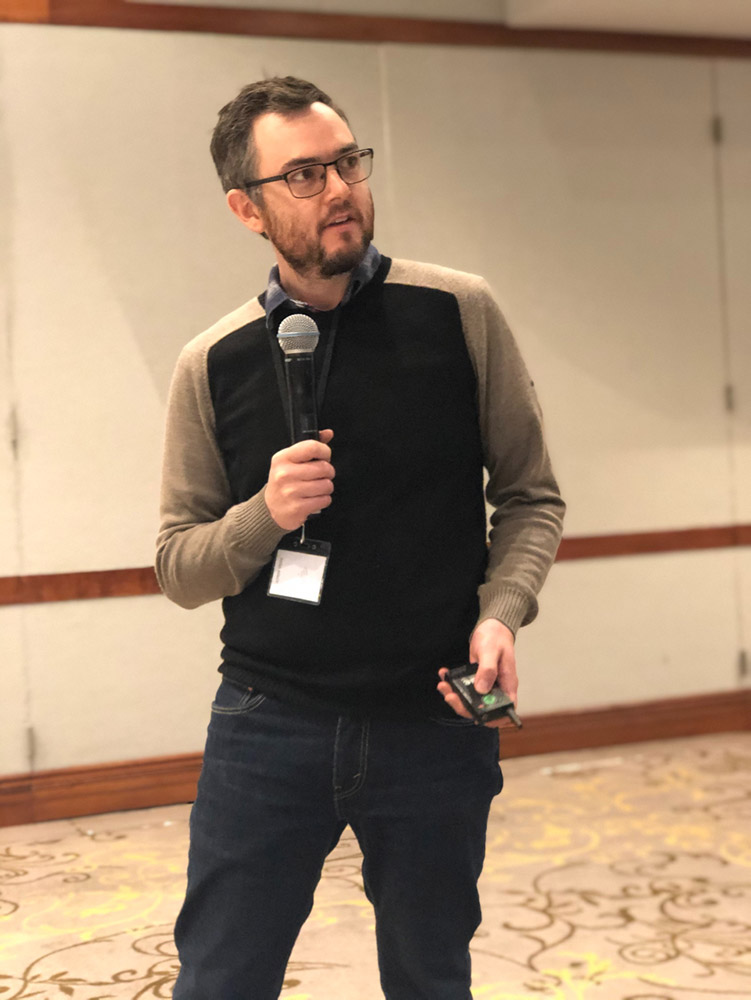
Dr Christopher Hall
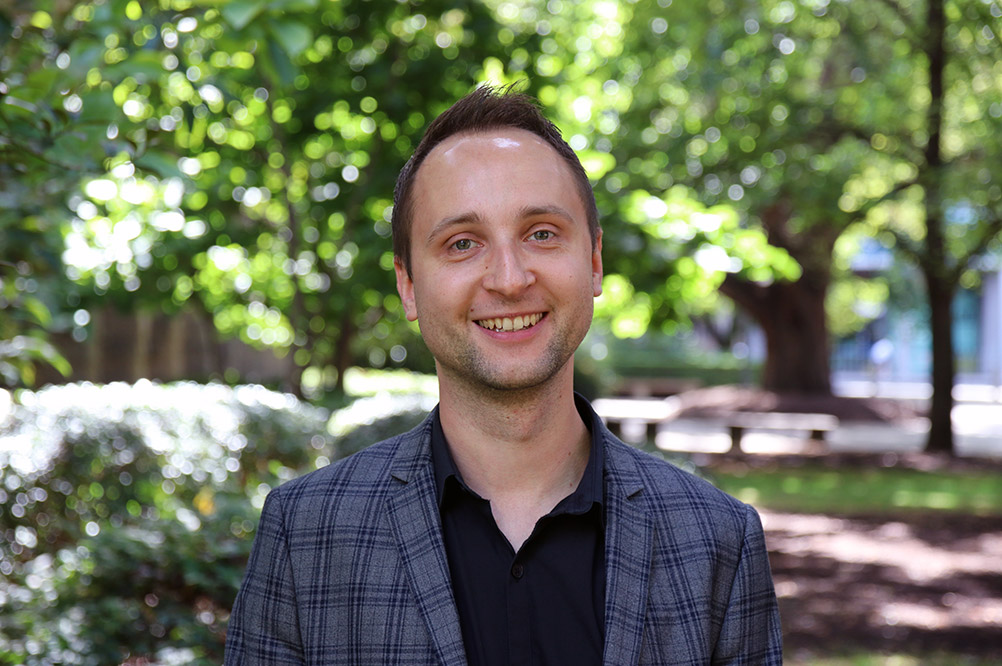
Dr Lars Goerigk
Pople Medal awarded to Dr Lars Goerigk
Exciton Science Associate Investigator Dr Lars Goerigk received the 2022 Pople Medal, awarded to young scientists in the Asia Pacific region who have distinguished themselves through pioneering and important contributions.
Dr Goerigk received the award for his contributions to the accurate treatment of ground and excited states with density functional theory and the development of accurate and robust time-dependent double-hybrid density functionals for electronic excitation energies.
Awarded by the Asia-Pacific Association of Theoretical and Computational Chemists (APATCC), the Pople Medal is named after the 1998 Nobel Prize in Chemistry laureate the late Sir John A. Pople.
Dr Goerigk is only the third Australian to win the medal - the highest honour for a theoretical or computational chemist under the age of 45 in the Asia Pacific - to be presented during a plenary lecture at the next APATCC meeting in Vietnam in 2023.
Dr Goerigk received his PhD from the University of Münster in Germany in 2011, and then worked as a postdoc at the University of Sydney.
In 2014, he moved to the University of Melbourne after receiving an Australian Research Council (ARC) Discovery Early Career Researcher Award (DECRA).
In 2016, Dr Goerigk accepted an offer for a continuing position as a lecturer and in 2019, became senior lecturer in theoretical and computational quantum chemistry at the University's School of Chemistry.
His main interests are the application and development of new density functional theory methods for electronic ground and excited states.
His work has previously been recognised with a 2017 Physical Chemistry Division Lectureship at the Royal Australian Chemical Institute and the two highest Australian chemistry awards for mid-career researchers, the 2019 Le Fèvre Medal from the Australian Academy of Science and the 2020 Rennie Memorial Medal from the Royal Australian Chemical Institute.
Colette Boskovic recognised as a leader in Chemistry
Exciton Science Associate Investigator Colette Boskovic has received the Royal Australian Chemical Institute’s (RACI) 2022 Margaret Sheil Leadership Award in recognition of her outstanding work in the chemical sciences.
The award acknowledges an outstanding female leader working in an area of a chemistry-related field including academia, teaching, and the public or private sector, who has inspired and mentored junior female chemists or helped to provide a more equitable workplace.
Professor Boskovic is an inorganic chemist and ARC Future Fellow at the University of Melbourne. She is passionate about teaching chemistry and enhancing the participation of women in chemistry.
She currently leads a group of inorganic chemists interested in the synthesis and study of molecular materials based on paramagnetic transition and rare earth metals.
Professor Boskovic sits on numerous committees and was elected a Fellow of the RACI in 2020 and is presently the Chair of the RACI Inorganic Chemistry Division Committee and the AINSE Councillor for the University of Melbourne.
She is also a member of the International Advisory Boards for the International Conference on Molecule-based Magnets (ICMM), Asian Conference on Molecular Magnetism (ACMM) and Asian Conference on Coordination Chemistry (ACCC).
The award is named in honour of Professor Margaret Sheil AO, Provost of the University of Melbourne at the time of commencement of this award and the first female Professor of Chemistry in Australia.
Professor Boskovic received the award medal at the RACI Annual Awards Dinner on Friday 25 November and is expected to conduct a lecture tour within Australia next year to help inspire the next generation of chemists.
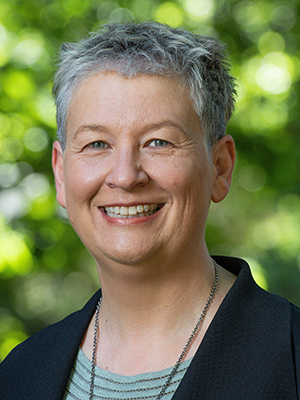
Colette Boskovic
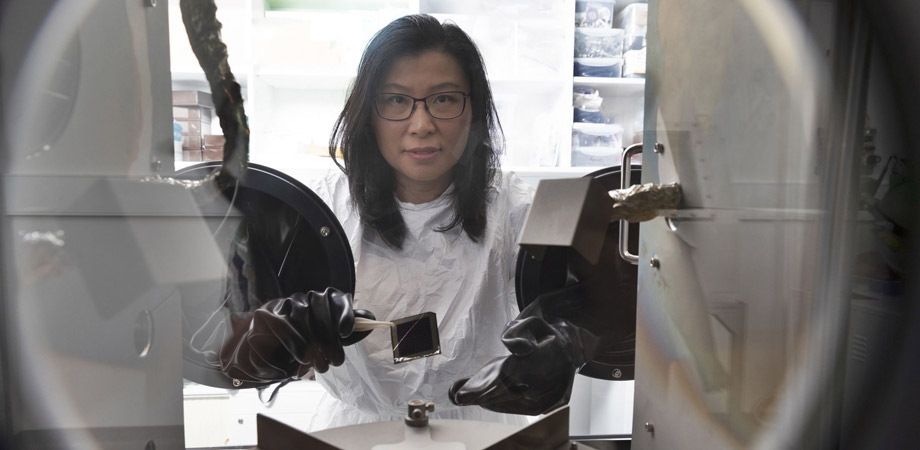
Ho-Baillie developing next-gen solar cells
Anita Ho-Baillie’s Warren Prize
Exciton Science Associate Investigator Anita Ho-Baillie won the Royal Society of NSW 2022 Warren Prize, which recognises research of national or international significance by early- or mid-career engineers and technologists.
Professor Ho-Baillie of the University of Sydney is a pioneer in the development of next-generation solar cells that are key to transitioning to a carbon-free-economy.
Focusing on multi-junction solar cells, the aim of her research is to increase their power conversion efficiency to between 40% and 50%. The efficiency of commercially available silicon solar cells is around 25%.
In addition, her recent breakthroughs in improving the durability of perovskite solar cells are critical steps towards commercial viability.
Despite the early stage of her career, her outstanding contributions to the important field of energy research are recognised around the world.
Four times a Clarivate Analytics Highly Cited Researcher, in 2021 she was named Top Australian Researcher in Sustainable Energy by The Australian newspaper and by leading journal ACS Energy Letters, one of 30 leaders in advancing perovskite solar cells and one of 40 Women Scientists at the Forefront of Energy Research in the World.
Dane McCamey awarded Sir Paul Callaghan Medal
Exciton Science congratulates Dane McCamey on being awarded the Sir Paul Callaghan Medal by the Australian and New Zealand Magnetic Resonance Society (ANZMAG).
The Medal commemorates the contributions of Sir Paul Callaghan (1947-2012) to magnetic resonance research, education and development in Australia and New Zealand.
It recognises a senior researcher within 15 years of completing their PhD and is awarded every two years.
Professor McCamey is an Exciton Science Chief Investigator and Pro Vice-Chancellor (Research) at UNSW.
Dane completed his PhD at UNSW in 2007, followed by postdoctoral research roles at the University of Utah and the University of Sydney.
He returned to UNSW in 2013 and was awarded an ARC Future Fellowship a year later.
“I’m humbled to receive the Sir Paul Callaghan Medal and grateful to my fellow ANZMAG members for selecting me,” Dane said.
“The previous recipients of this award set a high bar, and I’m hopeful my group will continue to honour them and the award’s namesake by maintaining the high quality and impact of our research in the years ahead.”
Dane is a highly creative physicist who works at the intersection of quantum science, condensed matter physics and chemistry.
His work focuses on understanding the microscopic electronic processes that govern the operation of modern electronic materials and devices.
Dane is best known for his work on electrical detection of magnetic resonance, employing this technique to achieve influential results in silicon and in organic electronic devices.
In silicon, he has made important contributions to our understanding of spin-dependent recombination at high magnetic fields.
Dane demonstrated the first electrical readout of a nuclear spin in silicon via an electrically detected electron nuclear double resonance (ENDOR) approach.
In a 2017 paper in Nature Physics, he and his team first reported the presence and importance of a quintet intermediate state in singlet fission, in what has become one of the most cited recent papers in electron spin resonance.

Professor Dane McCamey
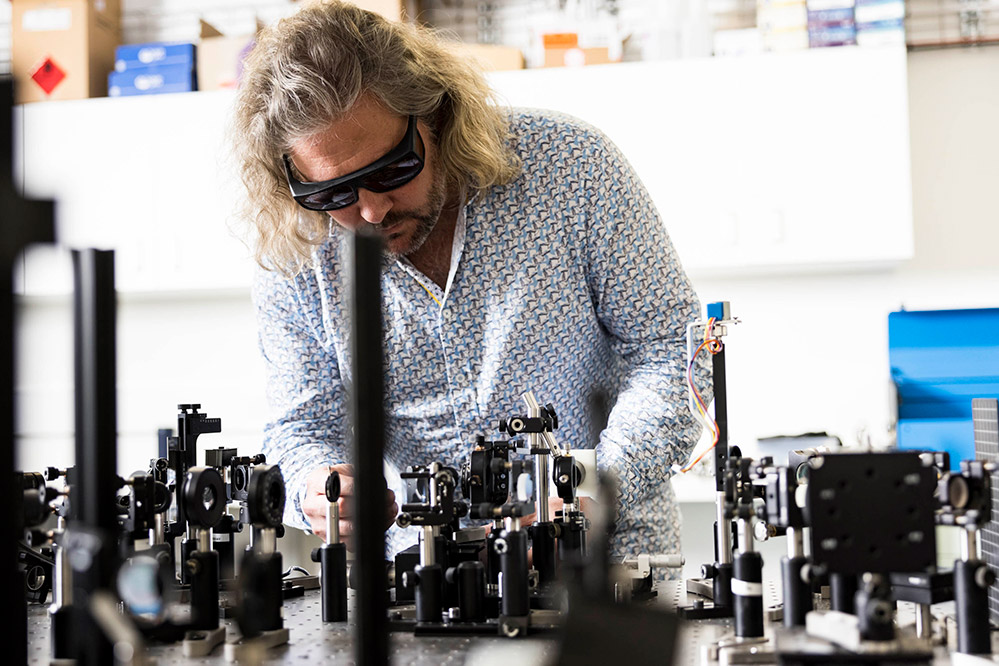
Professor Tim Schmidt
Tim Schmidt awarded Liversidge Lecture
Exciton Science congratulates our Chief Investigator Tim Schmidt on being awarded the Liversidge Lecture for 2022 by the Royal Society of New South Wales.
The Liversidge Lecture is awarded at intervals of two years for the purpose of encouraging research in chemistry.
It was established under the terms of a bequest to the Society by Archibald Liversidge, who was a Professor of Chemistry at the University of Sydney from 1874 to 1907.
Professor Liversidge taught Tim’s great-great uncle during this time, a testament to the passion for science and knowledge running through several generations of the latest recipient’s family tree.
Tim is a Professor of Chemistry at UNSW Sydney. He studied at the University of Sydney, winning the University Medal for Theoretical Chemistry in 1997, before completing a PhD at the University of Cambridge.
Tim worked in postdoctoral research roles in Basel, Switzerland, and at CSIRO, before joining the University of Sydney as a lecturer. He rose to Associate Professor before moving to UNSW as an ARC Future Fellow in 2014.
The judging panel noted that “Professor Tim Schmidt is an internationally recognised leader in his field.
“His research concentrates on spectral manipulation using excitons, with applications including solar energy conversion, including the application of triplet-triplet annihilation up conversion to solar cells, investigations into the mechanism of singlet fission, and luminescent solar concentrators.
“His work has been recognised by awards including the Broida Prize (International Symposium on Free Radicals 2015), the Coblentz Award (2010), the RACI Physical Chemistry Lectureship and the RACI Physical Chemistry Medal (2021).”
Previous recipients of the Liversidge Lecture include Hans Freeman (1978), Donald Napper (1984) and Sev Sternhell (1992), who all taught Professor Schmidt as a student at the University of Sydney.
“I’m humbled to receive this award from the Society,” Tim said.
“It’s an honour to follow some of the great names in Australian chemistry, including several who played an influential role in my education.
“Hopefully I can do justice to their legacy and help to educate and inspire a future recipient in the same manner.”
Robert Hunter, another former recipient of the Liversidge Lecture (1988), did not teach Tim directly but did buy drinks for the University of Sydney student and his classmates.
“In 1997, a schooner of Coopers was $2 in happy hour,” Tim said.
When it comes to building a rapport between teacher and student, following Hunter’s particular example is a considerably more costly exercise for academics in 2022.
Bioinspiration & dynamic proteins among 2023 Discovery Projects
Five Exciton Science Associate Investigators were among the successful applicants for the Australian Research Council’s 2023 Discovery Projects.
RMIT University’s Daniel Gomez is part of a project aiming to fabricate 2D soft plasmonic photocatalysts with leaf-like structures and functions for solar-to chemical energy conversions.
The researchers hope to increase our understanding of plasmon-enhanced photocatalysis mechanisms, and construct artificial leaves to perform the solar-to-chemical conversions, which can provide significant benefits, such as creating a new generation of soft energy devices and advancing Australian expertise in photochemistry, self-assembly, and functional nanomaterials.
Andrew Christofferson, also at RMIT University, and his collaborators will address critical issues in studying proteins outside their native environments by developing new solvents that will increase their stability and solubility.
The project expects to create new knowledge in our understanding of solvent chemical properties through a novel approach using high throughput robotics, synchrotron analysis of protein structures and Molecular Dynamics simulations.
The expected outcome is a set of design rules for creating new solvents. This should benefit many research and industrial applications, including determining protein structure for the development of new drugs and biocatalysts, and cryopreservation of protein-based pharmaceuticals.
Lars Goerigk of the University of Melbourne and Monash University’s Chris Ritchie will be part of a team examining proteins, which perform almost every task that enables the amazing complexity of cellular and whole organism physiology.
These molecular machines perform this incredible array of tasks due to their ability to dynamically change shape. For the vast majority of these machines, we can only view a snapshot of the possible shapes they can adopt and can’t monitor how they change from one shape to another, which is critical for their functioning.
This project aims to develop and apply a completely new method to visualise dynamic changes in protein shape which is not possible with current techniques. This will allow us to provide a new description and understanding of the function of proteins, which is fundamental to all biology.
The University of Melbourne’s Ann Roberts and her colleagues will seek to discover the nano-structural properties of beetles that enable effective management of solar and thermal radiation in different environments.
A further aim is to reveal how these composite biological materials combine thermal control with desirable mechanical properties, such as strength and flexibility. Passive control of radiative energy is critical for both animal survival and for the design of many manufactured materials, particularly in a warming world.
This interdisciplinary project will provide new knowledge of the different ways that biological materials mediate radiative energy exchange with the environment. This knowledge is essential for the design of bioinspired, energy-efficient, multi-functional materials.
To read more about the first round of 2023 ARC Discovery Projects, go to: https://www.arc.gov.au/funding-research/grant-announcement-kits/discovery-projects-2023
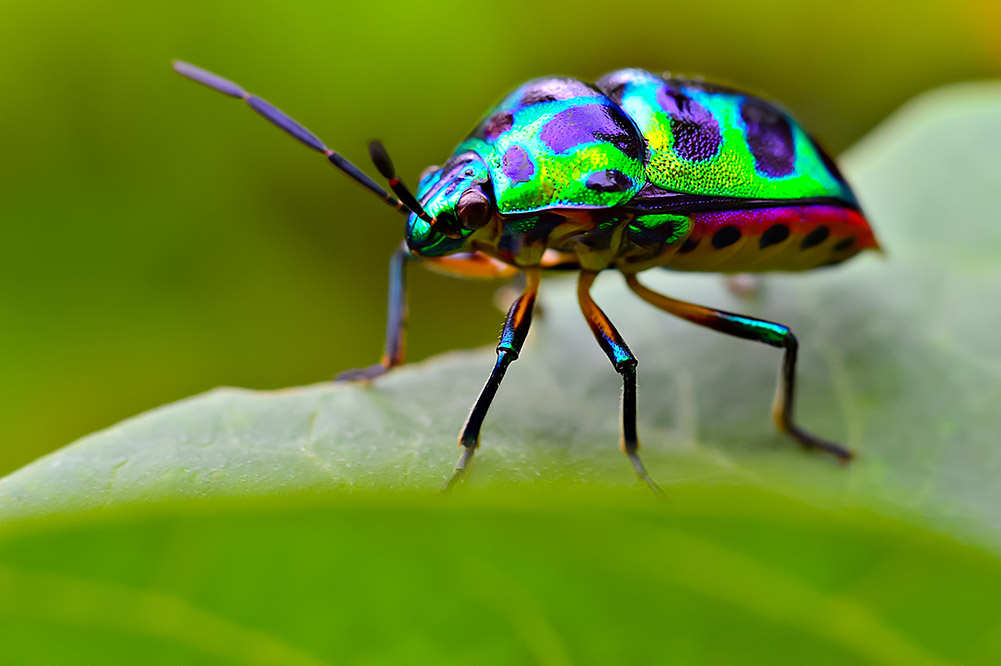
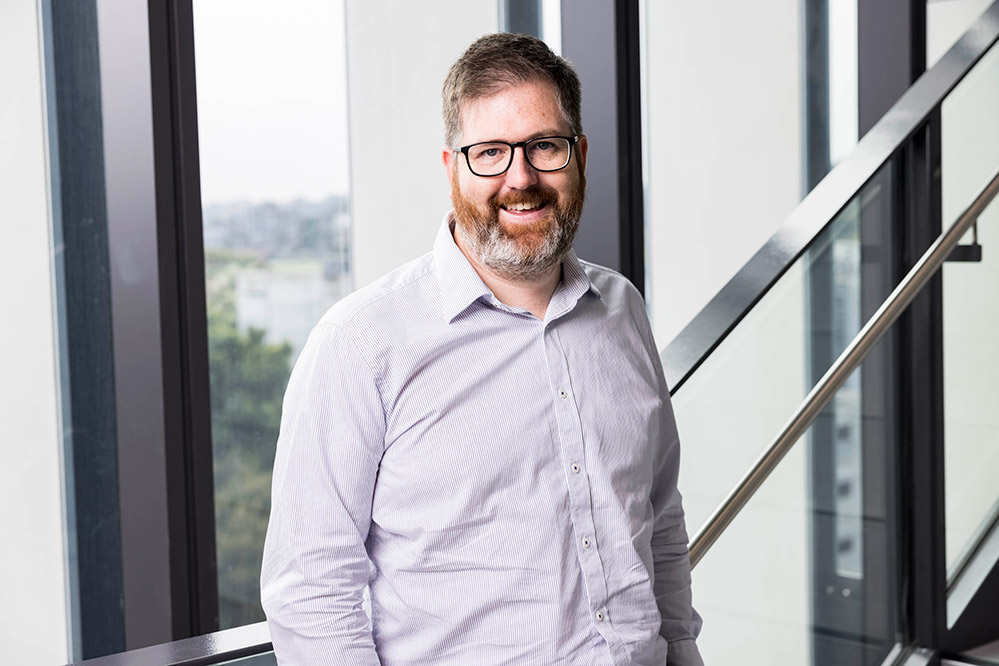
Professor Dane McCamey
Dane McCamey appointed Pro Vice-Chancellor (Research) at UNSW
Exciton Science Chief Investigator Professor Dane McCamey was appointed to the position of Pro Vice-Chancellor (Research) at UNSW for a period of 12 months from 10 October 2022.
Following Scientia Professor Sven Rogge’s appointment as the Dean of UNSW Science, the Division commenced a formal search process for the substantive appointment of a new Pro Vice-Chancellor (Research).
In the interim, Professor McCamey agreed to step in and help maintain stability and momentum of the various initiatives within the portfolio.
Professor McCamey is the Deputy Dean Research and Enterprise for UNSW Science and has been an academic in the School of Physics since 2013. An experimental condensed matter physicist, his impressive research track record has seen him secure $37.3M in research funding across his career, and more recently, receive the 2022 Sir Paul Callaghan Medal from The Australian and New Zealand Society for Magnetic Resonance.
Professor McCamey has a strong background in academic leadership, through a diverse range of roles, including as Associate Dean International & Engagement and as Associate Dean Enterprise & Engagement within UNSW Science.